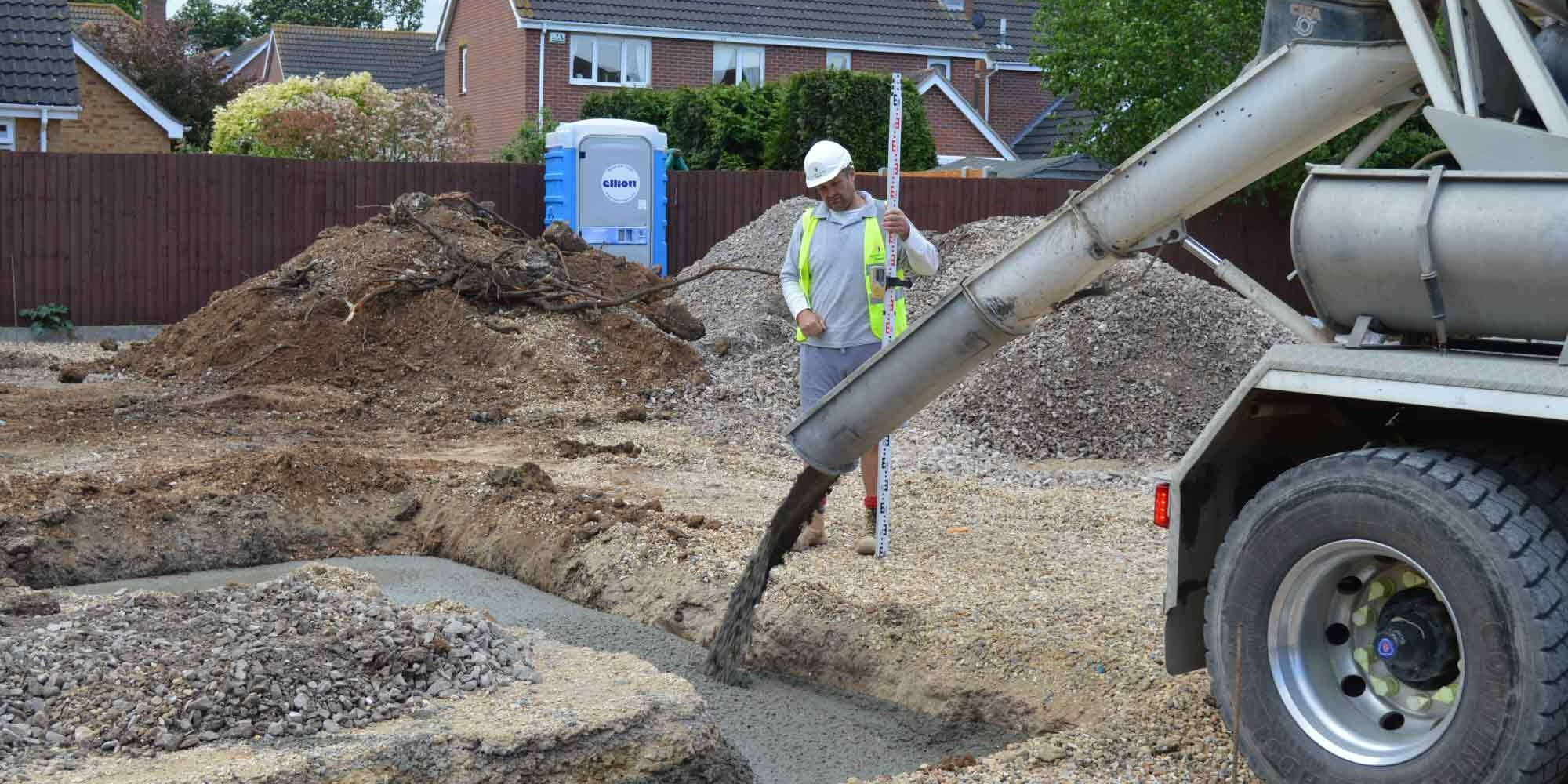In the UK, there are several different types of foundations that can be used in construction, depending on the specific requirements of the project. Here are some of the most common types of foundations used in the UK:
Strip Foundations: Strip foundations are typically used in low-rise construction and consist of a continuous strip of concrete that supports the walls of a building. They are typically used on firm ground where the soil has good bearing capacity.
Trench Fill Foundations: Trench fill foundations are similar to strip foundations, but they are wider and deeper. They are typically used in areas with poor soil conditions or where the soil has a low bearing capacity.
Pad Foundations: Pad foundations are isolated footings that support individual columns or walls. They are typically used in areas with poor soil conditions or where the soil has a low bearing capacity.
Raft Foundations: Raft foundations are a type of foundation that spans the entire area of a building. They consist of a reinforced concrete slab that spreads the weight of the building evenly over a large area, providing stability and resisting settlement.
Pile Foundations: Pile foundations are typically used in areas with poor soil conditions or where the soil has a low bearing capacity. They consist of long, slender columns of concrete or steel that are driven into the ground to support the weight of the building.
Mass Concrete Foundations: Mass concrete foundations are typically used in areas with poor soil conditions or where the soil has a low bearing capacity. They consist of a large block of concrete that is poured into a trench or excavation.
Stilt Foundations: Stilt foundations are typically used in areas with poor soil conditions or where the soil has a low bearing capacity. They consist of poles or columns that support the weight of the building, leaving the ground underneath the building free from excavation.
These are some of the most common types of foundations used in the UK. The choice of foundation type will depend on a variety of factors, including the soil conditions, the weight of the building, and the specific requirements of the project. A qualified structural engineer can assist in determining the most appropriate foundation solution for a particular project.

